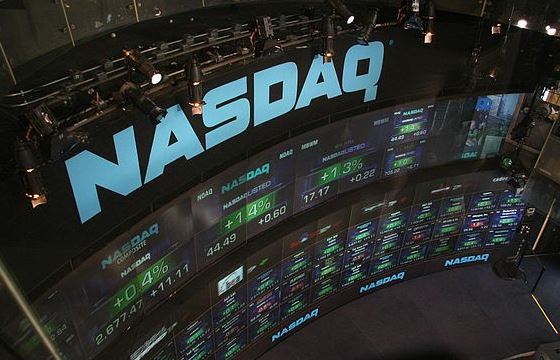A year ago, the idea that the Nasdaq Composite could reach its record high, set on March 10, 2000, seemed preposterous. That high was 5,132.52, and it had been driven up by absurd valuations of primarily Internet stocks. As many of them collapsed into oblivion, so the Nasdaq Composite. But the index only needs to run 28% to reach that March 10 level again. Based on the surge of the stock market in the past five years, the summit is much more attainable. After all, the Nasdaq is higher by almost 160% over the past five years. But a very few stocks, and perhaps Apple Inc. (NASDAQ: AAPL) alone, could hold the Nasdaq relatively near its current position.
The exchange describes that index:
The NASDAQ Composite tracks the stocks in the index with a market capitalization weighting of each security in the index. This means the larger companies listed on the NASDAQ exchange have more influence over the index value than the smaller companies.
Ten companies make up about a third of the weight of the index, with Apple as the largest component. Its share price is up less than 10% in the past year. The composite would need more help from Apple to make a significant surge.
Another aspect of the index that makes a sharp increase in the Nasdaq Composite unlikely is the very modest performance, or retreat, of the other large market cap members. Microsoft Corp. (NASDAQ: MSFT) is high up the index based on weighing. Not far down the list of weighted companies sit Cisco Systems Inc. (NASDAQ: CSCO) and Oracle Corp. (NASDAQ: ORCL), which are ancient tech companies by most measures and have become penned in by smaller rivals.
On the plus side of an additional advance of the index is Google Inc. (NASDAQ: GOOG), which also has a high weighting, and its shares may continue to rally as its earnings improve. Also likely to help any improvement is Amazon.com Inc. (NASDAQ: AMZN).
It is an irony that the Nasdaq run to more than 5,000 was pushed by shares in companies with stocks that had only been listed a year or two. Most of these then crippled the index’s rush up. Now, limiting a further advance are some companies that have been listed for decades.
It’s Your Money, Your Future—Own It (sponsor)
Retirement can be daunting, but it doesn’t need to be.
Imagine having an expert in your corner to help you with your financial goals. Someone to help you determine if you’re ahead, behind, or right on track. With SmartAsset, that’s not just a dream—it’s reality. This free tool connects you with pre-screened financial advisors who work in your best interests. It’s quick, it’s easy, so take the leap today and start planning smarter!
Don’t waste another minute; get started right here and help your retirement dreams become a retirement reality.
Thank you for reading! Have some feedback for us?
Contact the 24/7 Wall St. editorial team.





